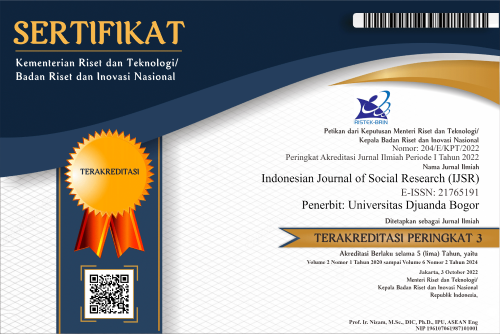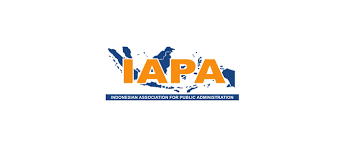Academic Retention, Research Capacity, and Sustainable Development in African Universities
Abstract
There is a shift of interest towards the current pace of development in Africa especially with regard to science and technology. The rate at which advancements are being recorded in this and other sectors has not been encouraging, as evident from official records. Scholars and researchers in various disciplines have correlated development to education and identified close associations between the level of performance of any citizenry or manpower, and the quality of its education. Accordingly, the quality of life and experience on the African continent has, to an appreciable extent, been characterised as the output variable and the quality of education including that of the teachers, as the input variable. The antecedent variable, too, which in this context is the totality of experience that informs educational directions in Africa, is arguably a product of the input variable. Consequently, the tertiary educational level especially the university system, unlike both the primary and the secondary, may be more strongly associated with the quality of performance. This may be explained through the dominant thinking that the tertiary system is primarily concerned with the production of manpower for various sectors. While there is evidence of research into this question, there is insufficient evidence of research into the interplay of the academic retention system and research capacity development orientation in African universities. This paper is an attempt to investigate that hitherto underrepresented dimension. The study employs a combination of the historical method and analytic philosophy. Its significance lies in its potential to expose, with evidence, the association between the dominant academic retention system and research capacity development orientation in African universities, as well as the implication of such an association for sustainable development in Africa. The study ultimately offers an ameliorative proposal for revitalizing an outcome-oriented research capacity development system in African universities.
References
Adeyemi, M. B. & Adeyinka, A.A. (2003). The Principles and Content of African
Traditional Education. Educational Philosophy and Theory. 35(4), 374-382.
African Development Bank’s African Development Institute (2021) Strengthening
Institutional Capacities for Inclusive Development in Africa post-COVID-
Webinar, March, 16.
Anokye, S.A., Okri, J.A. and Adie, E.A. (2017). Retention and Brain Drain of Academic Staff in Higher Institution in Nigeria: A Case Study of University of Calabar. Global
Journal of Educational Research, 18, 99-105.
Archer, S. (2017). The Function of a University in South Africa. South African Journal of
Science, 1113 (5/6), 1-20.
Arevalo, I., So, D. & McNaughton-Cassill, M. (2016). The role of collectivism among
Latino American college students. Journal of Latinos & Education, 15 (1), 3-11.
Bangura, K. A. (2005). Ubuntugogy: An African Educational Paradigm that Transcends Pedagogy, Andragogy, Ergonagy and Hentagogy. Journal of Third World Studies, 22, (2), 13-53.
Bowen, J. (2019). ‘Teaching naked: How moving technology out of your college classroom will improve student learning’. Keynote presented at CELT’s Annual Fall Teaching Conference, Fort Wayne,IN.
Han, Susa & Thomas, T. (2017). Effects of Academic Mindsets on College Students’ Achievement and Retention. Journal of College Student Development, 56 (8) 1119-134.
Higgs, P. (1997). Curriculum Design and Implementation for Courses in Philosophy of Education at the Undergraduate and Postgraduate Levels. Centre for Scientific Development (pp. 1-36)
Hunn, V. (2014). African American Students, Retention, and Team-Based Learning: A Review of the Literature and Recommendations for Retention at Predominantly White Institutions. Journal of Black Studies, 45 (4), 301-314.
Jean-Baptiste, A. M. (2019). Recruiting and Retaining African Americans in BSN Programs. ABNF Journal, 30 (2) 44-49.
Johnson, A. (2019). ‘I Can Turn It on When I need To’ : Pre-college integration, Culture, and Peer Academic Engagement among Black and Latino/a Engineering Students. Sociology of Education, 92 (1), 1020.
Johnsons, L. (2013). The Benefits of a Comprehensive Retention Program for African American Students at a Predominantly White University. Interdisciplinary Journal of Teaching & Learning, 3 (1)38-52.
Mgwebi, T. (2019). The Recruitment, Retention and Progression of South African Black Academics University Policy and Strategy Review. Higher Education Training. 3, 1-20.
Nkoane, M. (2005). “Constructing Knowledge through Learner-centered Approach.” Study: presented at University of Witwaterstand. Johannesburg South Africa.
Nkoane, M. (2006). The Africanisation of the University of Africa. Alternation 13 (1), 49-69.
Ochola, O. (2005). The Marginalized Knowledge: An Informetric Analysis Of Indigenous Knowledge Publications (1990-2004). South African Journal Of Library And Information Science, 71 (3), 247-258.
Owusu, F. Y., Kalipeni, E, Kiiru, J.M.M. (2015). Building Research Capacity for African Institutions: Confronting the Research Leadership Gap and Lessonsfrom African Research Leaders. Community and Regional Planning. 6, 51-72
Pulford, J., Crossman, S., El-Hajj, T. & Bates, I. (2020). Strengthening Research Management and Support Services in Sub-Saharan African Universities and Research Institutions. AAS Open Research.
Ramose, M. B. (2004). In Search of an African Philosophy of Education. South African Journal of Higher Education. 18 (3), 138-160.
Ramose, M. B. (2016). “I doubt therefore African philosophy exists”. South African Journal of Philosophy. 22 (2), 112-127.
Salau, O., Worlu, R., Osibanjo, A., Adeniji, A., Atolagbe, T. and Salau, J. (2021). Determinants of Retention Strategies and Sustainable Performance of Academic Staff of Government-Owned Universities in Nigeria. F1000 Research, 9 (902), 1-14.
Salau, O. P., Worlu, R., & Osibanjo, A. (2018). The Impact of Work Environments on Retention Outcomes of Academic Staff of State Universities in Southern Nigeria. Sage Open. 2, 1-16.
Tettey, W.J. (2006), Staff Retention in African Universities: Elements of a Sustainable Strategy. Retrieved April 11, 2021 from http://w.w.w.foundation-partnership.org/ulf/resource/tettey_staffretention.
The Chronicle of Higher Education, Washington, D.C., January, March, & June, 2021.
Thomson, N. (2003). Science Education Researchers as Orthographers: Documenting Keiyo
(Kenya) Knowledge Learning and Narratives about Snakes. International Journal of
Science Education 25. 1: 89-115.
Too, E. K.., Chepchieng, M.C. & Ochola, J. (2015). Effect of Academic Staff Retention on Quality Education in Private Universities in Kenya. Problems of Education in the 21st Century. 64, 86-94.
Turner, P & Thompson, E. (2014). College Retention Initiatives Meeting the Needs of Millenial Freshman Students. College Student Journal, 48 (1), 94-104.
UK Collaboration on Development Sciences (2021) Research Capacity Strengthening: Learning from Experience.
Copyright (c) 2021 Indonesian Journal of Social Research (IJSR)

This work is licensed under a Creative Commons Attribution-ShareAlike 4.0 International License.
The Authors submitting a manuscript do so on the understanding that if accepted for publication, copyright publishing of the article shall be assigned/transferred to Indonesian Journal of Social Research (IJSR) Universitas Djuanda as Publisher of the journal. Upon acceptance of an article, authors will be asked to complete a 'Copyright Transfer Agreement'. An e-mail will be sent to the corresponding author confirming receipt of the manuscript together with a 'Copyright Transfer Agreement' form by online version of this agreement.
Indonesian Journal of Social Research (IJSR) Universitas Djuanda, the Editors and the Editorial Board make every effort to ensure that no wrong or misleading data, opinions or statements be published in the journal. In any way, the contents of the articles and advertisements published in the Indonesian Journal of Social Research (IJSR) Universitas Djuanda are sole and exclusive responsibility of their respective authors and advertisers.
Remember, even though we ask for a transfer of copyright, our journal authors retain (or are granted back) significant scholarly rights as mention before.
The Copyright Transfer Agreement (CTA) Form can be downloaded here: Copyright Transfer Agreement-IJSR 2020
The copyright form should be signed electronically and send to the Editorial Office e-mail below:
Dr. Rasmitadila, M.Pd (Editor-in-Chief)
Universitas Djuanda
Jl. Tol Jagorawi No.1, Ciawi, Kec. Ciawi, Bogor, Jawa Barat 16720
Website: http://journal.unida.ac.id/index.php/IJSR/index
Email: ijsr@unida.ac.id





4.png)



